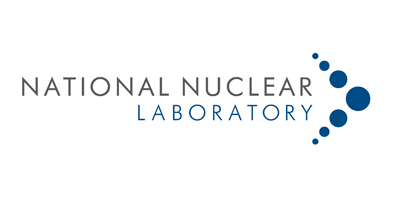Envisioning a sustainable future together
Sustainability is a core consideration within the clean energy sector, but what does it truly mean to AFCP? In a full-day virtual event, AFCP hosted a Sustainability Workshop to discuss definitions, share technical progress and explore future pathways that best benefit all.
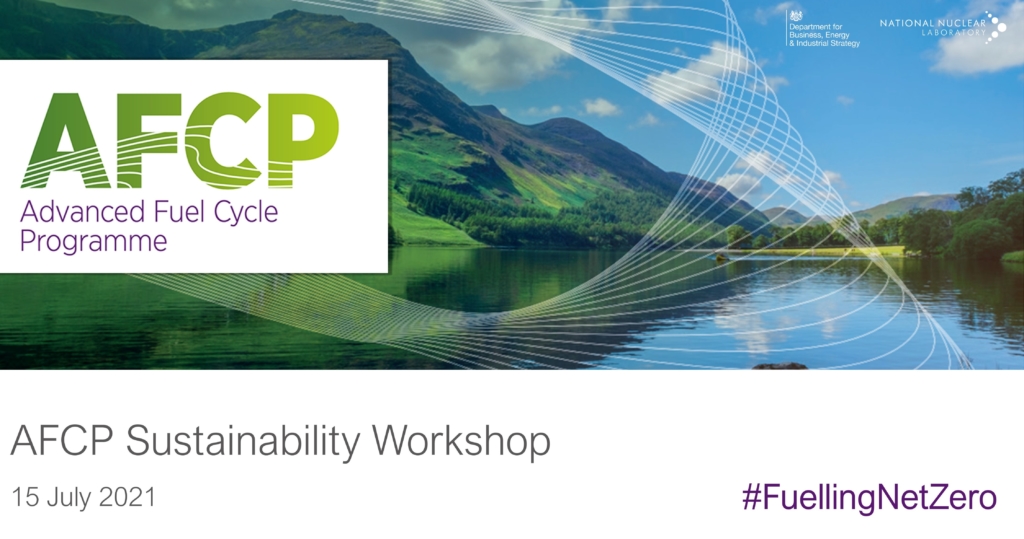
In 1987, the United Nations Brundtland Commission defined sustainability as meeting the needs of the present without compromising the ability of future generations to meet their own needs.
This definition continues to influence a range of decisions and directions, including the UK’s Net Zero transition. Through the Advanced Fuel Cycle Programme (AFCP), over 100 organisations are working to ensure that nuclear energy evolves in ways that best benefit people and the planet.
Last week, over 50 programme stakeholders dialled in for AFCP’s Sustainability Workshop. Reflecting on how advanced fuel cycles support sustainable development – and what sustainability fundamentally means for the programme – the event generated invaluable insights for the programme.
Setting the scene
Chaired by Clint Sharrad from the University of Manchester, the workshop’s first technical session reviewed the relationship between nuclear science and sustainability.
Dalton Nuclear Institute’s Gregg Butler opened the day by defining sustainable development, using this framework to suggest how AFCP can sustain its own mission. With a focus on pragmatism and economic outlooks, he referred to the Institute’s recent paper – Nuclear Energy for Net Zero: A Strategy for Action – which recommends how the nuclear sector can achieve its best potential.
AFCP’s Technical Director, Paul Nevitt, followed by assessing the role of nuclear in the wider energy system. Centring the National Nuclear Laboratory’s (NNL) transformative new report – UK Energy System Modelling: Net Zero 2050 – his presentation introduced future scenarios and applications of advanced nuclear technologies. Enabled through AFCP, this modelling also underpins the programme’s new roadmap report – Fuelling Net Zero: Advanced Nuclear Fuel Cycle Roadmaps for a Clean Energy Future.
Wrapping up the session, Henri Palliere from the International Atomic Energy Agency (IAEA) expanded on these opportunities. Expressing the urgency of action before 2050, Henri reviewed the potential for nuclear within the entire energy system and beyond. There is real potential, he expressed, for nuclear to deliver electricity, heat and hydrogen while also enabling cross-sector innovations in medicine, agriculture and more. Following last year’s launch of the UK’s first IAEA Collaborating Centre on Advanced Fuel Cycles – a decision influenced by AFCP – there is recognition that advanced fuel cycles will help enable these goals through clean energy generation coupled with recycling elements for non-nuclear applications.
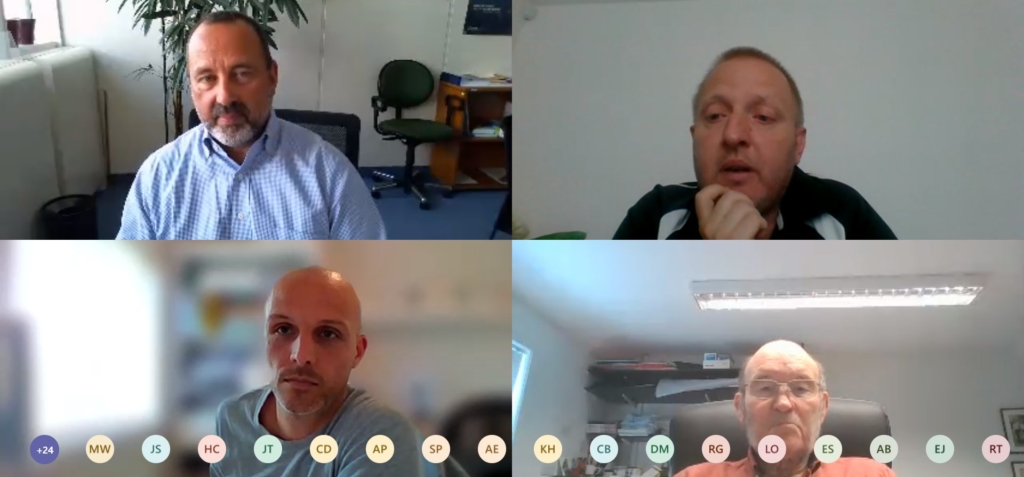
Uniting the pillars of sustainability
Following this introduction, the workshop’s second session – chaired by Will Bodel from the University of Manchester – explored the three pillars of sustainability: social, economic and environmental.
Manchester anthropologist Ian Tellam began by analysing the socio-economic and public acceptability aspects of nuclear energy. With recurring themes of balance versus disruption, his presentation raised major questions – what is being sustained, why and for whom? – in the context of clean energy.
NNL’s Robin Taylor, who leads AFCP’s Advanced Recycling and Sustainability projects, began answering these questions. Referencing a collaborative report underway on AFCP, Robin discussed the economic and environmental aspects of advanced fuel cycles. Advocating for adaptivity and openness, he explained how this work can help the UK best prepare for technological changes through the future.
Nathan Read from the University of Cambridge added perspectives about future transitions and fuel cycle modelling. Representing AFCP’s Pyrochemical Processing project, Nathan compared future reactor scenario that evaluate trade-offs and identify opportunities to reduce the environmental impact of recycling nuclear fuels.
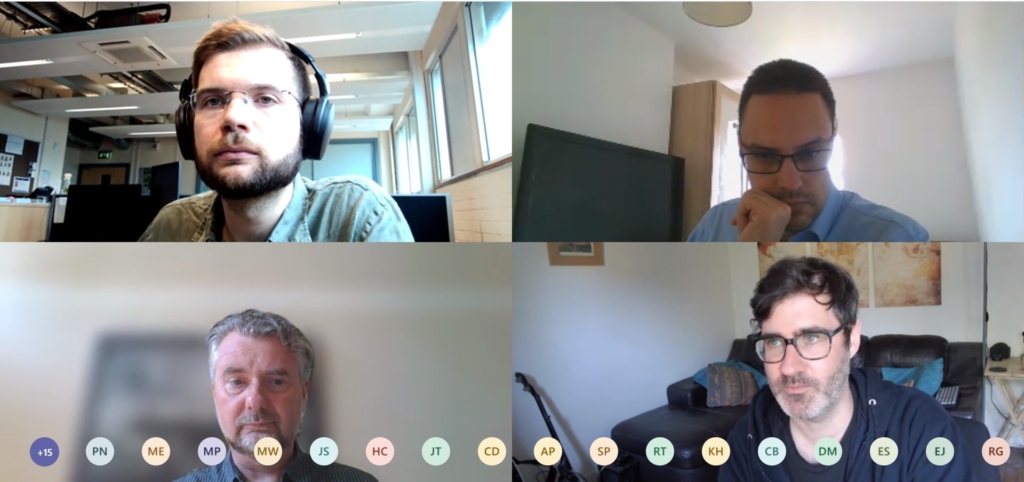
Opening AFCP’s toolbox
For a deeper dive into tools and technologies, NNL’s Anthony Banford led discussions about AFCP’s arsenal for analysis.
University College London’s Andrea Paulillo began by introducing Life Cycle Assessment. Rooted in natural science, this methodology enables researchers to quantity a technology’s wide-ranging environmental, social and economic impacts. On AFCP, Andrea and his team are exploring the best routes to minimise costs and wastes when recycling used nuclear fuels.
Chris Connolly transitioned to talk about Sim Plant, NNL’s novel software tool for optimising future fuel recycling plants. Through comparing new technologies with past reprocessing routes, the tool can show how R&D can reduce wastes, optimise processes and save costs . Chris reviewed his AFCP team’s success and future directions, aiming to use Sim Plant to inform future energy decision-making.
NNL’s Luke O’Brien then reviewed the Waste Management Hierarchy, a comprehensive method used across AFCP teams. In ranking the environmental impact of different technologies and processes, the hierarchy identifies optimal routes to treating used fuels and the residual wastes from recycling.
Extending this collaborative approach, Jonathan Macdonald-Taylor explained NNL’s new analytical tool for integrated waste management. The tool enables researchers to justify choices and inform strategic decision-making when it comes to fuel treatment options.
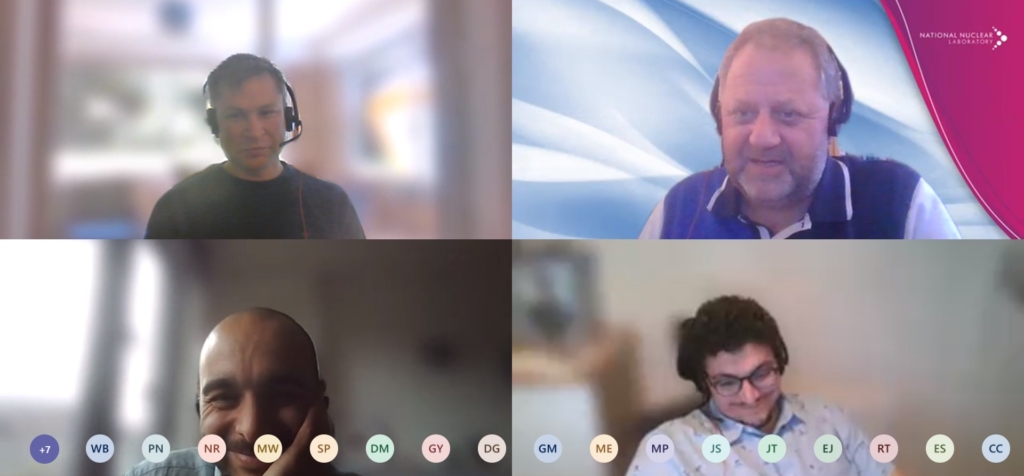
Seeing the bigger picture
In the workshop’s final technical session, chaired by Paul Nevitt, speakers discussed the long-term, global impacts of advanced fuel cycle innovation.
With so much talk about the act of recycling fuels, NNL’s Steve Palethorpe introduced applications for these materials. Through recovering and reusing additional elements from used nuclear fuels, he discussed wide-ranging utility across renewable energy, medical isotopes and more.
Kevin Hesketh then reviewed how NNL is ensuring the physical safety of advanced fuel cycles. Through modelling proliferation resistance, researchers can begin to identify possible barriers across various reactor systems.
Reflecting on a day of discussion
With a full day of insightful presentations and conversations, the workshop concluded with a forward look. Neil Smart from the Nuclear Innovation and Research Office (NIRO) summarised key points and reviewed the road ahead for AFCP:
- Sustainability must be evaluated through integrated environmental, social and economic lenses
- Adopting different tools and techniques ensures a holistic view of future fuel cycle deployment
- Flexibility and open-mindedness are key for the nuclear industry to confidently move forward
- Collaboration empowers cross-sector supply chains, policymakers, early career teams and more
- Clearly communicating complex topics is necessary to inform decision-makers and engage future nuclear leaders
- Proactivity and prioritisation will set us up for success.
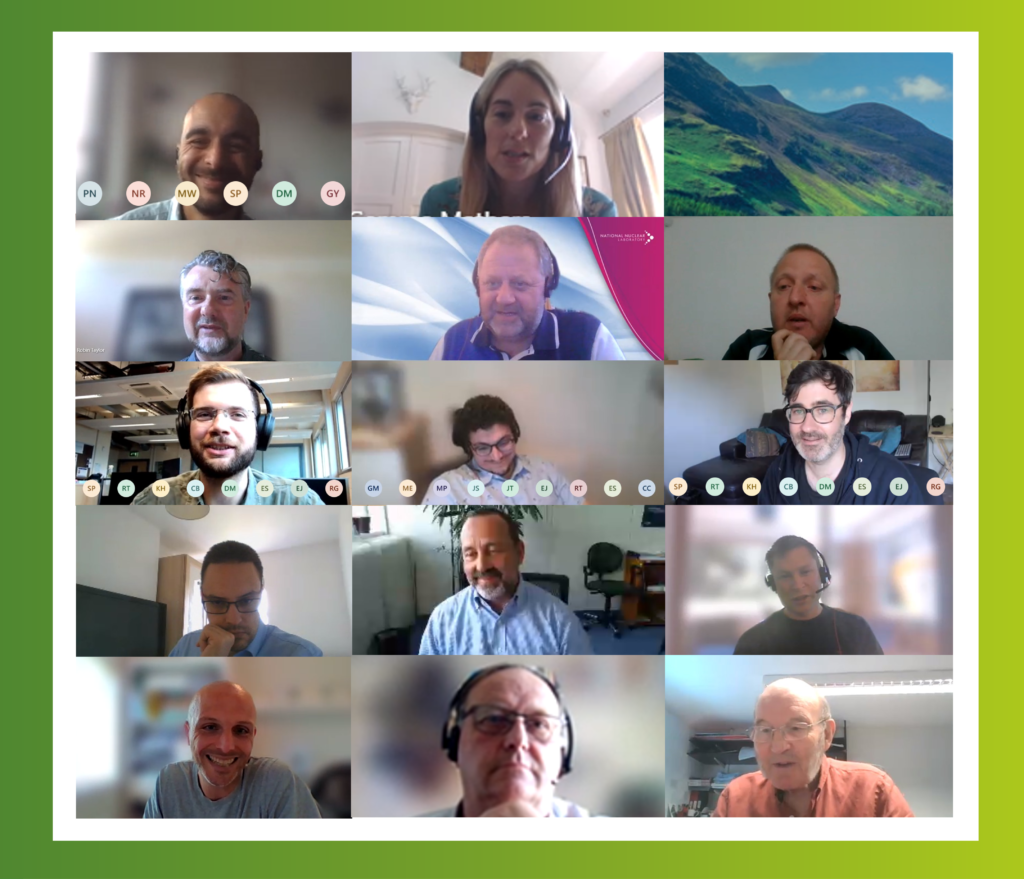
Securing sustainability together
With collaboration underpinning AFCP, the programme has greatly benefited from virtual events this past year. Following its series of virtual Quarterly Technical Meetings and even a sustainability-slanted academic showcase, AFCP’s Sustainability Workshop enabled stakeholders to present updates and outlooks on their technical activities.
The workshop created an opportunity to exchange information on techniques and methods, discuss progress and promote communications between different AFCP teams. This interconnected approach aims to broaden understanding of how the programme assesses challenges and secures opportunities to drive more sustainable nuclear fuel cycle.
I would like to thank all the speakers for such interesting talks of great relevance to the goals of AFCP. It was the first time we’ve brought people together to discuss their work under the concept of sustainability, so it was a bit of an experiment! Seeing all the different approaches in this way really helped highlight not only the great work done to date, but also the next steps needed to scientifically underpin the future of the nuclear fuel cycle.
Robin Taylor, AFCP’s Advanced Recycling and Sustainability Technical Lead
AFCP is part of the Department for Business, Energy and Industrial Strategy’s (BEIS) £505m Energy Innovation Programme.
